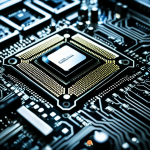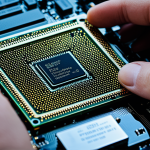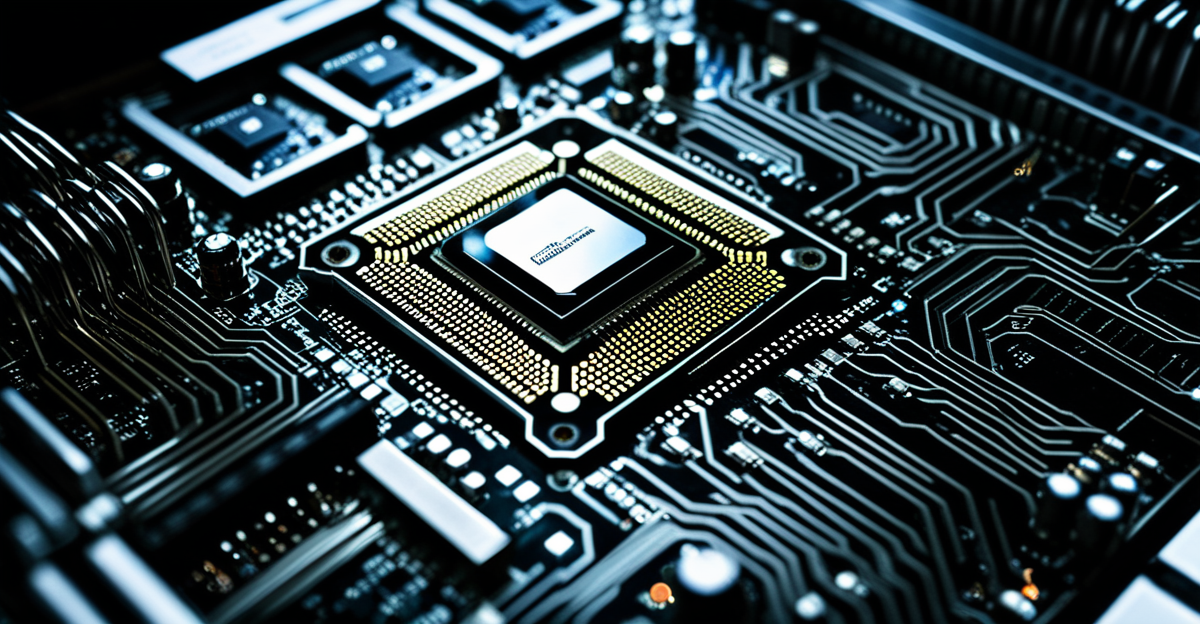UK Computing Hardware’s Role in Quantum Computing Progress
The UK quantum hardware sector plays a pivotal role in the global landscape of quantum computing advancements. The country’s focus on developing innovative quantum hardware solutions firmly positions it alongside international leaders striving to realize scalable quantum machines. UK technology sector efforts emphasize creating fault-tolerant processors that improve qubit coherence times and error rates—crucial for meaningful quantum computations.
Hardware innovation drives quantum computing progress by addressing challenges like decoherence, qubit connectivity, and integration with classical control systems. The UK’s contributions range from pioneering new qubit designs to refining cryogenic control architectures, essential for maintaining quantum states. These hardware breakthroughs enable experimental platforms that transition theoretical quantum algorithms into practical use.
Also read : What Drives the Innovations Behind UK Computing Hardware?
Within the global context, UK computing hardware forms a significant part of collaborative efforts to push quantum technologies forward. Its role includes not only fabrication advancements but also building interoperable systems that facilitate multinational research and development. By fostering hardware innovation, the UK technology sector supports accelerating quantum computing from laboratory prototypes to commercially viable quantum devices, making the nation an influential player in shaping quantum computing’s future.
UK Computing Hardware’s Role in Quantum Computing Progress
Exploring the backbone of UK advances
Also read : What are the opportunities for UK computing hardware in the gaming industry?
The UK quantum hardware sector plays a pivotal role in global quantum computing advancements, bridging theoretical breakthroughs and practical implementation. The UK technology sector has cultivated innovative hardware solutions critical to overcoming the unique challenges quantum computing poses, such as error correction and qubit stability.
Unlike classical computing hardware, quantum hardware requires precision-engineered components, including specialized superconducting circuits and ion trap systems. The UK stands out by developing core technologies that improve qubit coherence times and scalable architectures. This hardware innovation is essential because it lays the foundation upon which quantum algorithms operate effectively.
Within the global context, UK computing hardware contributions are recognized alongside international efforts, highlighting a collaborative yet competitive landscape. Crafting cutting-edge quantum processors in the UK accelerates progress beyond laboratory demonstrations toward real-world quantum computing applications.
Ultimately, the UK technology sector’s investment in quantum hardware innovation fuels its growing presence in quantum science and industry, ensuring that it remains a key player shaping the future of quantum computing worldwide. Hardware advancements remain an indispensable component, amplifying the UK’s influence in this transformative field.
Key UK-Based Hardware Innovations and Technologies
The quantum processors UK sector is marked by groundbreaking developments pivotal to advancing quantum computing. UK researchers and engineers have designed specialized chipsets that improve qubit fidelity and scalability—critical metrics for practical quantum use. Among these, superconducting qubits and silicon-based quantum dots highlight the diversity of UK-based quantum technologies, leveraging unique materials and innovative fabrication methods.
One standout approach involves pioneering new thin-film materials that enhance coherence times, addressing the notorious issue of quantum decoherence that causes fragile quantum states to collapse. By refining these materials and integrating novel cryogenic circuitry, UK hardware breakthroughs reduce error rates and improve stability, pushing devices closer to fault tolerance.
Scaling quantum processors remains a daunting task, but the UK technology sector’s leadership in modular architectures shows promising results. These designs allow multiple smaller quantum chips to interconnect, overcoming physical and engineering limits.
In summary, UK hardware innovations not only tackle quantum decoherence and scaling challenges but also contribute to a flexible technological foundation. This foundation supports ambitious goals for next-generation quantum devices and secures the UK’s role in the global race for quantum computing advancement.
UK Computing Hardware’s Role in Quantum Computing Progress
The UK technology sector has made significant contributions to the development of UK quantum hardware, which is integral to advancing global quantum computing advancements. This sector focuses on designing and fabricating components such as superconducting qubits and silicon-based processors that improve qubit coherence, a critical factor for practical quantum operations. The UK’s hardware innovation targets overcoming unique quantum challenges, including quantum decoherence and error rates, which classical computing hardware does not face.
How does the UK computing hardware integrate within global quantum efforts? The country participates extensively in international research collaborations, sharing hardware designs and fabrication techniques to enhance interoperability across platforms. This synergy enables faster iterations and improved hardware reliability. Moreover, the UK’s role in refining cryogenic control systems and modular architectures ensures scalable quantum devices can be constructed efficiently.
Hardware innovation from the UK is a driving force in turning theoretical quantum algorithms into executable processes. By developing robust processor architectures and tackling quantum-specific hardware constraints, the UK technology sector sustains momentum in quantum progress. This progress is vital for transitioning from experimental setups to commercially viable quantum technologies, underscoring the UK’s critical position in this competitive, rapidly evolving field.
UK Computing Hardware’s Role in Quantum Computing Progress
The UK quantum hardware sector significantly propels quantum computing advancements by producing specialized components that address fundamental challenges such as qubit coherence and error rates. This sector’s focus on precision-engineered qubits and scalable architectures enables the UK technology sector to transform experimental setups into practical quantum devices.
In the context of global quantum efforts, UK computing hardware contributes through innovative fabrication methods and integration strategies that improve device stability and fault tolerance. By refining superconducting circuits and advancing ion trap technologies, UK researchers enhance qubit fidelity and operational reliability, critical for scalable quantum machines.
Hardware innovation remains vital to quantum computing progress because it directly tackles problems like quantum decoherence and connectivity, which hinder qubit performance. The UK’s commitment to developing modular hardware platforms exemplifies its role as both a contributor and collaborator in the international quantum community.
This sustained hardware focus underpins the UK technology sector’s growing influence, positioning the country to accelerate the transition from promising quantum concepts to commercially viable systems. It also supports multidisciplinary initiatives that combine hardware prowess with algorithmic advances, ensuring the UK remains integral to shaping the quantum computing future.
UK Computing Hardware’s Role in Quantum Computing Progress
The UK quantum hardware sector is integral to driving quantum computing advancements worldwide. Focusing on precision-engineered components like superconducting circuits and silicon-based processors, the UK technology sector addresses unique challenges such as error correction and qubit stability. These innovations improve qubit coherence times and reduce error rates, which are crucial for maintaining the fragile quantum states necessary for computation.
How does the UK’s hardware development fit into global progress? The UK actively engages in international collaborations, sharing designs and fabrication methods that enhance interoperability. This cooperation allows faster iteration cycles and improves hardware reliability, essential for moving from laboratory research to practical devices.
Hardware innovation is more than component fabrication—it involves refining cryogenic control systems and scalable architectures to support larger quantum processors. These developments by the UK technology sector enable execution of complex quantum algorithms, paving the way from theoretical concepts to viable applications. By continuously tackling quantum-specific constraints, UK quantum hardware advances not only the field but also its commercial potential, reinforcing its vital role on the global stage.
UK Computing Hardware’s Role in Quantum Computing Progress
The UK quantum hardware sector drives significant quantum computing advancements by crafting specialized components tailored to the unique demands of quantum systems. The UK technology sector excels in developing hardware that improves qubit coherence and reduces error rates, which are critical bottlenecks in quantum computation. Notably, UK researchers focus on precision-engineered superconducting qubits and innovative silicon-based processors, enabling higher fidelity in quantum operations.
How does UK computing hardware integrate globally? It actively participates in international collaborative efforts, sharing design protocols and fabrication expertise to enhance hardware interoperability. This collaboration accelerates innovation cycles and enhances device robustness across diverse quantum platforms.
Hardware innovation is indispensable for quantum computing progress because it directly confronts fundamental issues like quantum decoherence and qubit connectivity. The UK quantum hardware sector’s work in modular architectures and cryogenic control supports scalable quantum systems, essential for transitioning beyond lab prototypes. Continuous refinement of these hardware platforms by the UK technology sector sustains momentum in the global race, ensuring practical, fault-tolerant quantum devices emerge.
Thus, UK computing hardware contributions are vital to quantum advancement, fueling interdisciplinary efforts that merge hardware improvements with algorithmic breakthroughs for real-world quantum applications.
UK Computing Hardware’s Role in Quantum Computing Progress
The UK quantum hardware sector is critical to advancing global quantum computing advancements, producing innovative components that directly enhance qubit stability and reduce error rates. This progress supports the UK technology sector in bridging experimental research with practical quantum systems. Through the development of superconducting qubits and silicon-based processors, the UK addresses challenges unique to quantum devices, such as maintaining coherence and implementing effective error correction.
How does the UK computing hardware fit into the global quantum landscape? The UK participates actively in international collaborations, sharing design innovations and fabrication techniques that bolster interoperability. These cooperative efforts accelerate development cycles and improve device robustness, essential for scaling quantum processors from laboratory prototypes to usable machines.
Hardware innovation also involves refining the underlying control environments, including cryogenic systems and modular architectures, which are necessary for handling increasingly complex quantum algorithms. By focusing on these aspects, the UK technology sector not only improves qubit fidelity but also enables larger-scale quantum computing implementations. This strong emphasis on hardware development secures the UK’s role as a leading contributor in quantum technology progression worldwide.
UK Computing Hardware’s Role in Quantum Computing Progress
Examining the UK’s pivotal contributions
The UK quantum hardware sector proves essential to advancing global quantum computing advancements by delivering precision-engineered components that address the core challenges of qubit coherence and error rates. The UK technology sector specializes in developing sophisticated superconducting qubits and silicon-based processors, which boost qubit fidelity and stabilize fragile quantum states, a fundamental requirement for practical quantum operations.
How does UK computing hardware fit within the global quantum efforts? It actively engages in international collaborations, sharing experimental designs and fabrication protocols to improve hardware interoperability. This cooperation accelerates the innovation cycle and strengthens device reliability across diverse quantum platforms.
Hardware innovation is pivotal because it tackles unique quantum-specific issues such as quantum decoherence and connectivity barriers that classical hardware cannot resolve. The UK’s initiatives in modular architectures and advanced cryogenic control systems enable scalable quantum devices, facilitating the shift from lab prototypes to real-world applications.
By persistently refining hardware platforms, the UK technology sector sustains momentum in the quantum race, stitching together experimental progress with commercial viability. Ultimately, the UK’s computing hardware efforts underpin its growing influence and highlight its indispensable role in shaping the future landscape of quantum computing worldwide.




